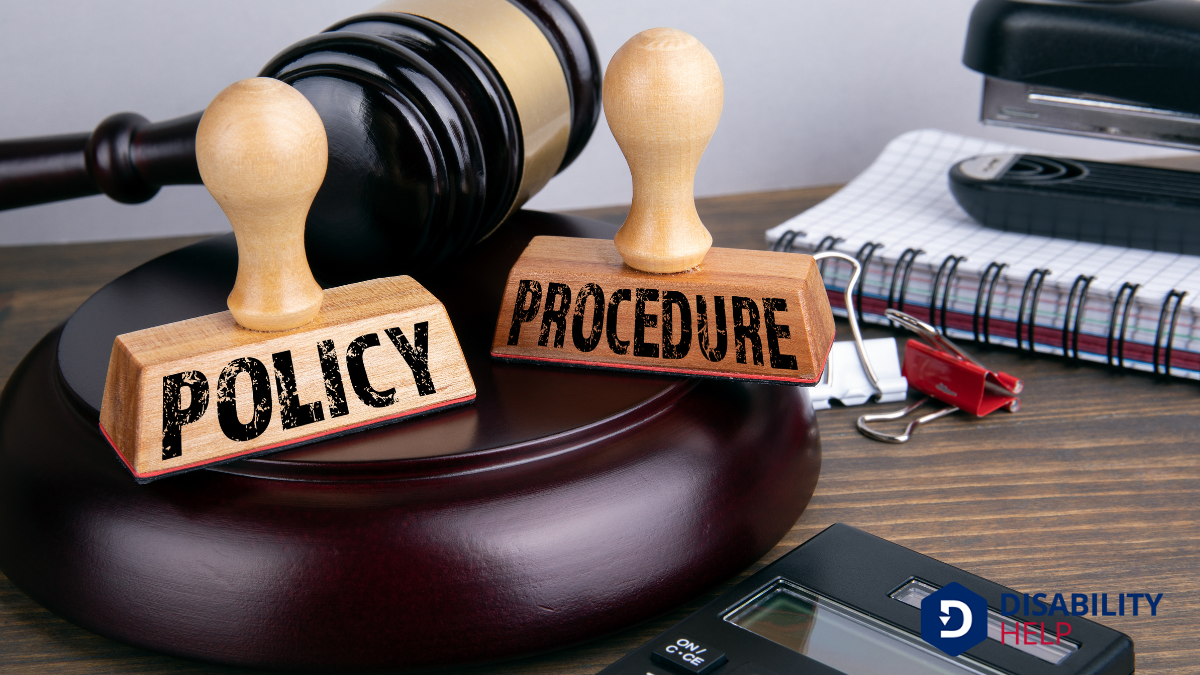Steering through the world of scholarships can be especially overwhelming for undocumented students with disabilities. You might wonder whether there are opportunities out there for you despite the legal and financial hurdles. While it's true that options are limited, there are pathways worth considering. Curious about how you can overcome these challenges and find the support you need? Let's explore the possibilities that might just surprise you.
Key Takeaways
- Undocumented students with disabilities can access scholarships from private organizations focusing on personal circumstances and academic achievements.
- Some universities offer specific scholarships tailored for undocumented students, including those with disabilities.
- Certain states provide financial aid programs that do not require citizenship, accessible to undocumented students with disabilities.
- Highlighting personal stories and challenges in applications can enhance scholarship opportunities for undocumented students with disabilities.
- Community resources and advocacyThe act of arguing in favor of, supporting, or defending the rights and interests of individuals or ... groups can guide undocumented students with disabilities in navigating scholarship opportunities.
Understanding the Challenges Faced by Undocumented Students With Disabilities
Maneuvering through the educational landscape can be particularly intimidating for undocumented students with disabilities. You face unique obstacles that can make accessing education even more challenging.
First, the fear of deportation might prevent you from seeking necessary support. It's tough when you're unsure where to turn for help without exposing your undocumented status. Additionally, language barriers can hinder communication, complicating interactions with educators and peers. Steering through these systems requires resilienceThe ability of individuals with disabilities to cope with and adapt to challenges and adversity. and resourcefulness.
Financial constraints add another layer of difficulty since many scholarships and financial aids exclude undocumented students. Coupled with the need for specialized resources and accommodationsModifications or adjustments in healthcare settings to support patients with disabilities. for your disability, these hurdles can feel overwhelming.
But understanding these challenges is the first step towards finding support and opportunities designed to help you succeed.
Legal Framework and Policy Considerations

Although traversing the legal landscape can be challenging, understanding the policies affecting undocumented students with disabilities is essential for accessing available resources. Federal and state regulations set the stage for what you can and can't do.
While undocumented students aren't eligible for federal financial aid, some states offer alternatives. It's vital to know your state's stance on in-state tuition and scholarship eligibility.
You'll find that policies like the DREAM Act or DACA can influence your options. These policies don't directly provide financial aid but can enhance access to certain educational opportunities.
School policies may also play a role, so it's important to research institutional guidelines. Clarifying these legal frameworks helps you identify potential pathways to obtaining scholarships and support for your education.
Types of Scholarships Available
When seeking scholarships as an undocumented student with disabilities, you'll find a variety of options tailored to your unique situation.
Private organizations and foundations often offer scholarships specifically designed for students like you, focusing on both your academic achievements and personal circumstances. These scholarships can be based on merit, community involvement, or financial need. Some scholarships also emphasize your commitment to overcoming challenges associated with your disability.
Additionally, many universities have their own scholarships for undocumented students. These scholarships can help cover tuition costs and sometimes provide additional support for your specific needs.
It's important to research and apply early, as competition can be fierce. Look for scholarships that align with your interests and strengths, ensuring you highlight your unique story and potential.
Federal and State Financial Aid Options
Maneuvering through federal and state financial aid options can be challenging for undocumented students with disabilities, but it’s essential to explore every avenue available.
Unfortunately, federal financial aid programs like FAFSA aren’t accessible due to citizenship requirements. However, some states offer financial aid options for undocumented students. Check if your state provides access to state grants or scholarships that don’t require citizenship.
For example, states like California and Texas have programs for undocumented students, including those with disabilities. Investigate the eligibility criteria and application processes thoroughly.
Don’t hesitate to contact your school’s financial aid office for guidance. They can help you understand the options available in your state and provide valuable advice.
Private and Institutional Scholarships

Finding scholarships from private organizations and institutions can greatly ease the financial burden for undocumented students with disabilities. You might feel overwhelmed, but many private scholarships don’t have citizenship requirements.
Focus on those programs that explicitly welcome applications from undocumented students. Look into organizations and foundations that prioritize diversityThe inclusion of individuals from a wide range of backgrounds, including people with disabilities. and inclusionThe practice of creating environments in which any individual or group can be and feel welcomed, res..., as they often offer resources for students like you.
Also, colleges and universities sometimes provide institutional scholarships specifically for undocumented students. Check with your school’s financial aid office or diversity office for any available opportunities.
Don’t forget to explore scholarships promoted by community groups or professional associations related to your field of interest. They can be valuable sources of support.
Navigating the Application Process
Applying for scholarships can be challenging, but breaking the process into manageable steps makes it less intimidating. Start by researching scholarships specifically for undocumented students with disabilities. Create a list of opportunities, noting their requirements and deadlines. Stay organized by using a calendar to track due dates and set reminders.
Next, gather necessary documents like transcripts, recommendation letters, and any disability documentation. Tailor your personal statement to highlight your unique experiences and aspirations. Emphasize how overcoming challenges has shaped you.
Proofread your application carefully. Errors can detract from your accomplishments, so ask someone to review it. Submit your application before the deadline, ensuring all components are complete.
Finally, follow up with scholarship providers if needed, showing your commitment and enthusiasm.
Role of Educational Institutions in Providing Support
While pursuing higher education, support from educational institutions can be vital for undocumented students with disabilities. You need to feel welcomed and accommodated, and schools can play an important role in that.
They can offer academic advisement tailored to your unique needs and provide access to specialized resources, like assistive technologies or counseling servicesProfessional guidance to help individuals cope with emotional, mental, or social challenges..
Colleges and universities should also provide training for staff and faculty to guarantee they’re aware of your circumstances. By fostering an inclusive environment, they help you feel empowered to succeed.
Financial support is another area where institutions can assist. They might offer scholarships specifically for undocumented students with disabilities.
Community Resources and Advocacy

Although traversing higher education as an undocumented student with disabilities can be challenging, community resources and advocacy groups are invaluable allies in your journey. These organizations can offer guidance, support, and sometimes even financial assistance. By connecting with local advocacy groups, you can find networks that understand your unique circumstances and can provide tailored advice on maneuvering scholarships and other educational opportunities.
Many community resources focus on empowering you through workshops, mentorship, and legal advice. They aim to guarantee you have the tools and information needed to pursue your academic goals despite the hurdles.
It's essential to tap into these resources, as they can help bridge the gap between your aspirations and the reality of accessing higher education. Remember, you're not alone in this journey.
Success Stories and Case Studies
Inspiring stories of undocumented students with disabilities who've successfully navigated the complexities of higher education serve as powerful reminders of what's possible.
Imagine a student like Maria, who, despite her visual impairmentA condition where a person has a decreased ability to see, even with corrective lenses. and undocumented status, earned a scholarship to pursue a degree in social work. Her determination and community support were essential.
Then there's Jose, who, with the help of a dedicated mentor, overcame learning disabilities and secured a scholarship in computer science.
These stories show that with the right support, undocumented students with disabilities can thrive. They underscore the importance of resilience, mentorship, and community resources.
As you hear these stories, you're reminded that challenges don't define potential—perseverance and support do.
You'll find inspiration in their journeys.
Strategies for Increasing Accessibility and Equity
The success stories of students like Maria and Jose highlight the need for proactive strategies that enhance accessibilityThe design of products, devices, services, or environments to be usable by people with disabilities.... and equityFairness and justice in the way people are treated, especially in the allocation of resources and op... for undocumented students with disabilities.
You can advocate for inclusive policies by collaborating with educational institutions to guarantee they understand the unique challenges faced by these students.
Encourage schools to create scholarship programs specifically tailored for undocumented students with disabilities, ensuring they receive the financial support they need.
You should also push for the training of faculty and staff to better accommodate diverse learning needs.
By fostering partnerships with community organizations, you’ll provide additional resources and mentorship opportunities.
Finally, raising awareness about existing scholarships can empower students to pursue their educational dreams without fear of financial barriers.
Conclusion
You've got the power to overcome obstacles as an undocumented student with disabilities. By actively seeking scholarships and utilizing community resources, you can find support tailored to your unique situation. Remember, private organizations and some universities offer opportunities specifically for you. Stay informed, reach out to advocacy groups, and tap into your network. With resilience and determination, you can navigate the complex landscape of educational funding and pursue your academic dreams. Keep pushing forward!






